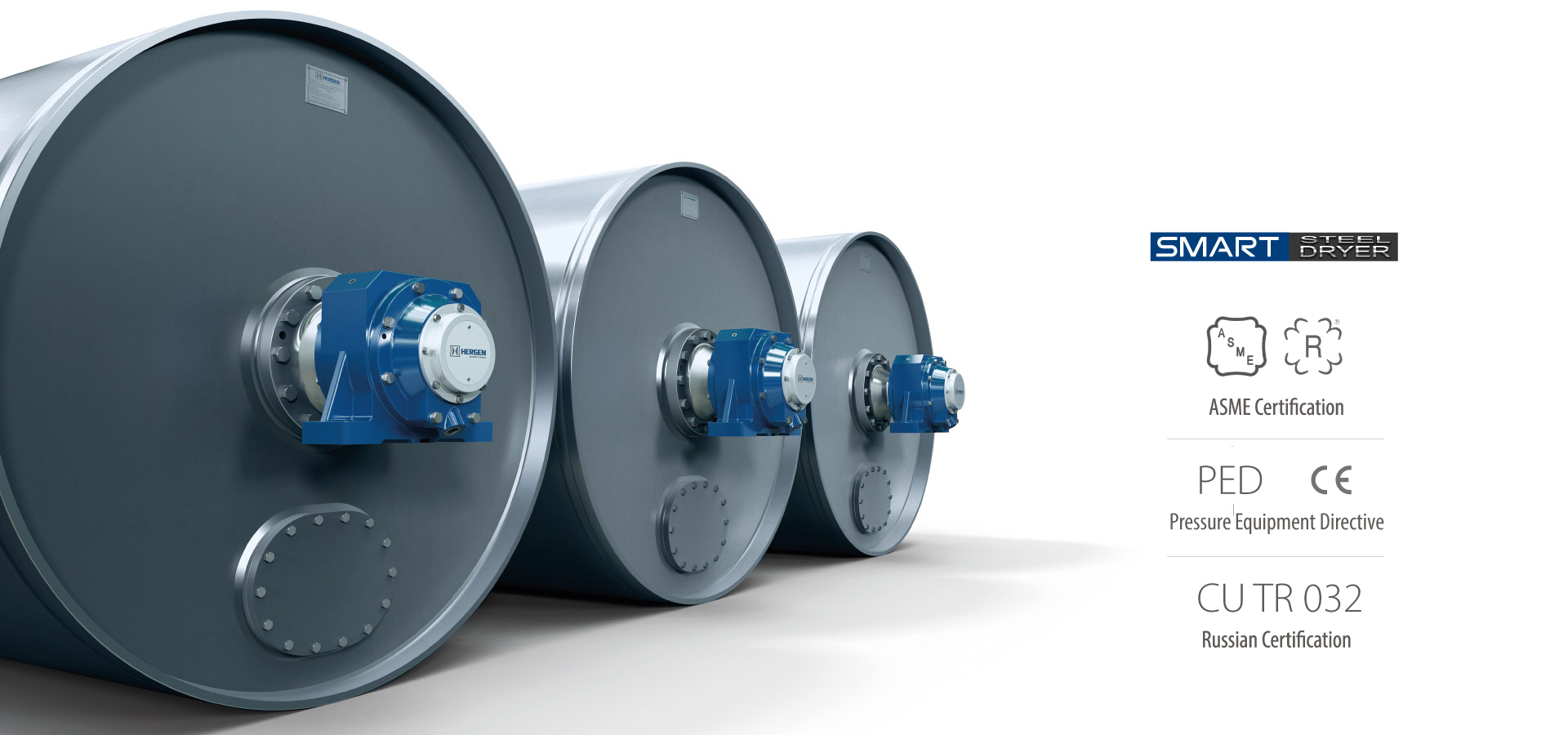Drying Cylinders

We fabricate Carbon Steel Drying Cylinders for the whole range of paper machine sizes, through a modern and rigorous manufacturing process, within the highest quality standards demanded by the world market.
We are credited to supply Carbon Steel Drying Cylinders and pressure vessels that comply with the main international certification standards such as ASME, PED and CUTR032 (Russia).
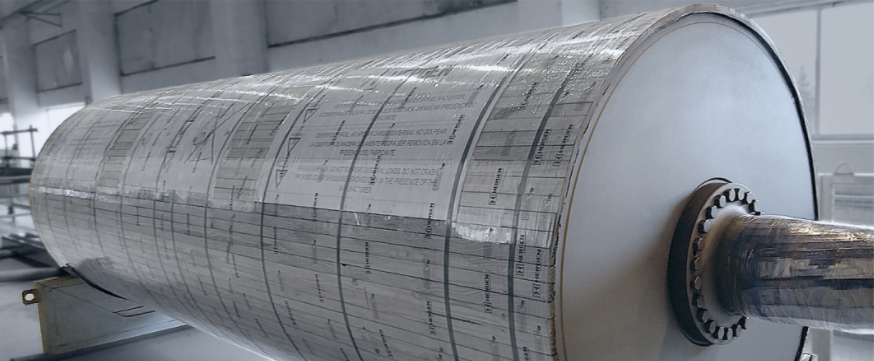

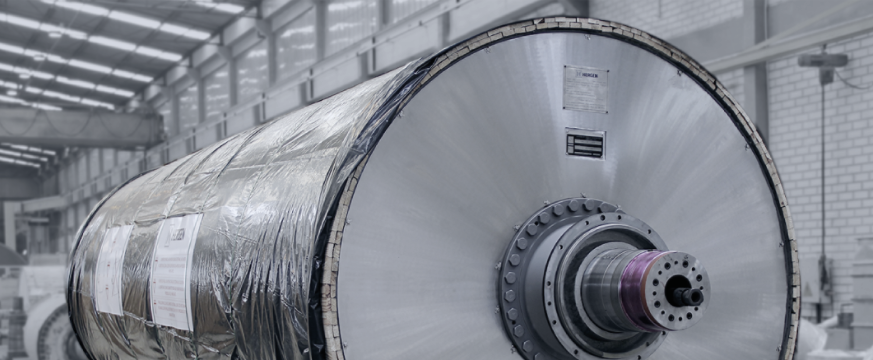
The many advantages of the carbon steel construction
Drying Gain
The main carbon steel property is ductility and this allows the reduction of the shell thickness of the dryer cylinder resulting in higher rates for heating transfer from the steam to the paper web.
The Global Heat Transfer Coefficient of Hergen Cylinders is about 3% higher than the market options
Paper: corrugated
Shell material: Carbon Steel
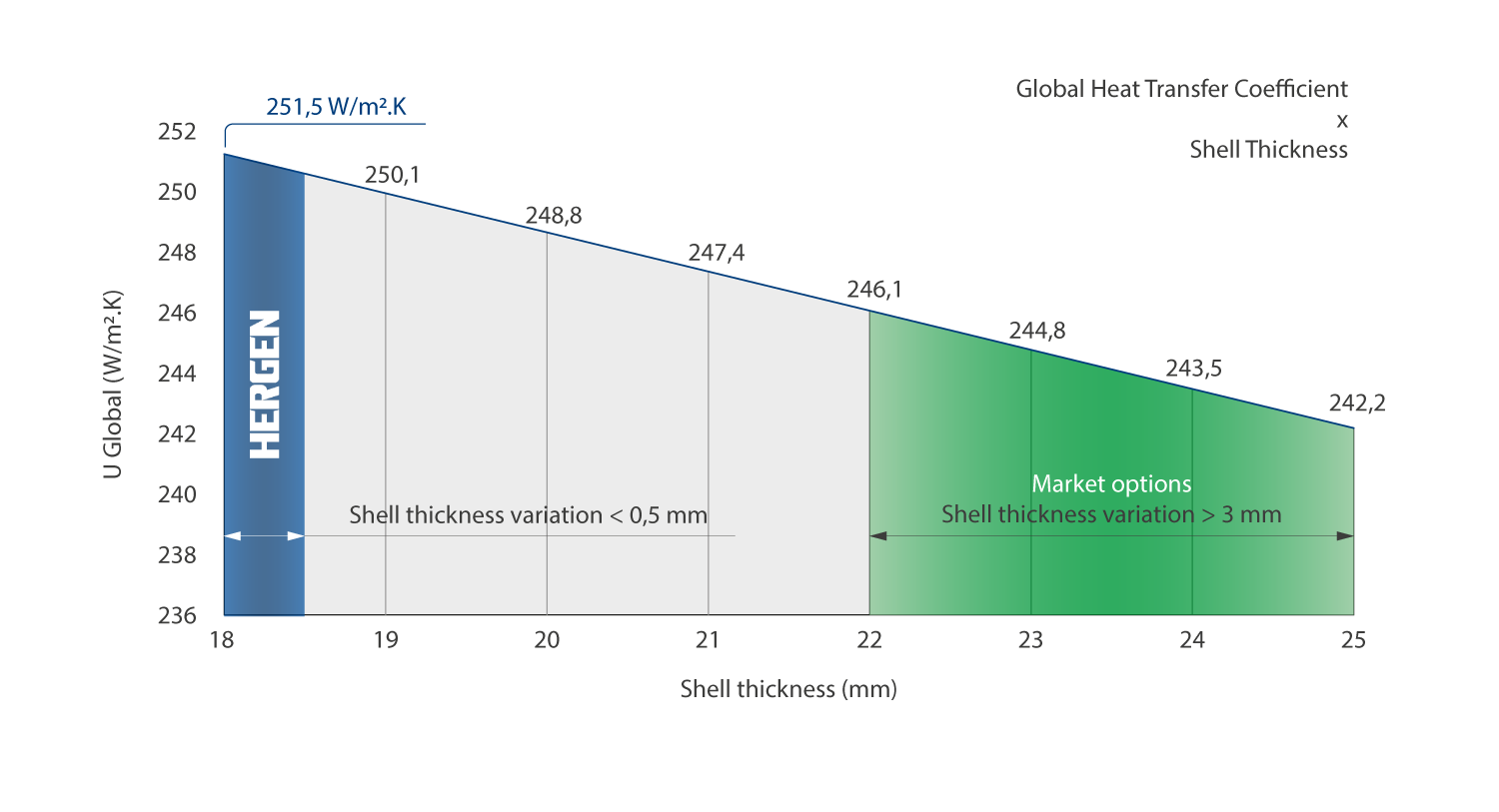
Real-life case:
Six of the 49 old Cast Iron Drying Cylinders have been replaced by our Carbon Steel Drying Cylinders

The Drying Cylinders supplied by Hergen feature a smaller difference between the saturated steam temperature and cylinder surface temperature when compared to the cast iron cylinders.

Increase useful width
Due to the compact construction of the steel dryer cylinders, it increases its useful width eliminating wet edge problems during paper drying.
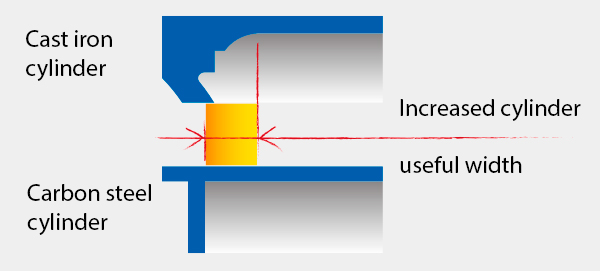
Safety Increase
ZERO risk of explosion due to construction in carbon steel.
Low maintenance
Excellent welding process applied for steel plates eliminating possible leakages.
Cylinder Features


Turbulence bars
Destroy the condensate film created on the inner surface thus enabling higher heat transfer through convection between steam and the inner cylinder surface.
Benefits
Increases cylinder drying capacity
Improves drying / moisture cross profile
Increases evaporation rate for cylinders already running at their evaporation limit
Low cost investment
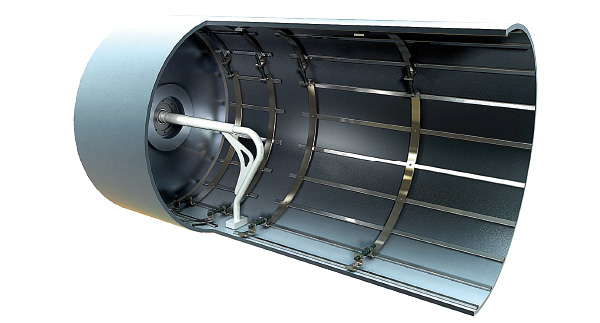
Oil lubricated bearings
Increased roller bearing lifespan.
Reduced maintenance
Excellent cost efficiency
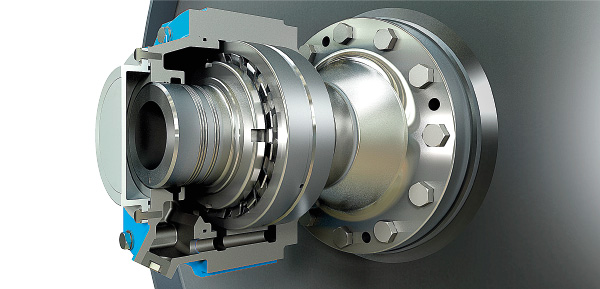
Rotary Joint with flanged assembly.
This allows precise alignment of the rotary joint with dryer cylinder journal reducing seal ring wear
Benefits
Increases seal ring useful life
Reduces maintenance
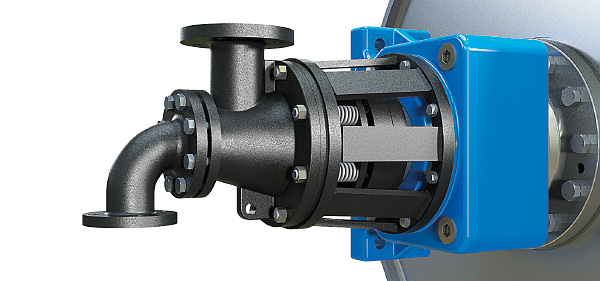
Thermal insulation
Dryer cylinder loses heat through its heads which means a continuous energy waste. Cylinder thermal insulation minimizes this loss resulting in considerable energy savings.
Benefits
Steam saving from 3 to 5%
Increases operator safety
Low cost investment
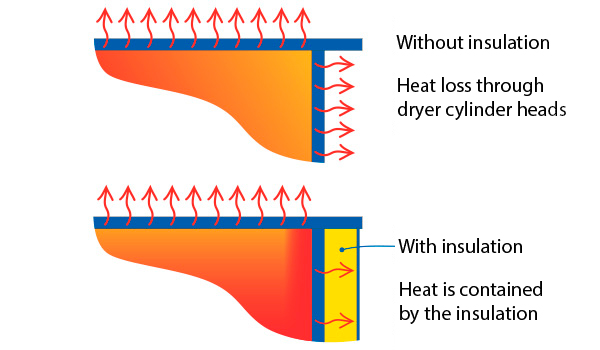
Quality control


Quality certificate for all steel plates used in the manufacturing – mechanical and chemical properties-.
Quality certificate for cast elements – mechanical and chemical properties and metallographic structure.
Cylinder construction in compliance with strict manufacturing standards (ASME, PED or others, as required).
Ultrasonic inspection for every shell and cover plate.
Dimensional inspection after shell manufacturing.
Ultrasonic inspection for all welding seams.
Thermal treatment for stress relief.
Hydrostatic test in compliance with ASME and PED standards.
Dynamic balancing as per ISO 1940 class G 2.5 Standard.
Thorough dimensional control in all stages of cylinder manufacturing.
Drying Cylinders Line

| Model | Diameter (mm) | Maximum face (mm) | Operating pressure (bar) | Construction Code |
|---|---|---|---|---|
| SSD 1000 | 1000 | 10.300 | 10 | ASME ou PED |
| SSD 1200 | 1200 | 10.300 | 10 | ASME ou PED |
| SSD 1300 | 1300 | 10.300 | 10 | ASME ou PED |
| SSD 1500 | 1500 | 10.300 | 10 | ASME ou PED |
| SSD 1800 | 1828 | 10.300 | 10 | ASME ou PED |
| SSD 2000 | 2000 | 10.300 | 10 | ASME ou PED |
| SSD 2200 | 2200 | 10.300 | 14 | ASME ou PED |
| SSD 2438 | 2438 | 10.300 | 14 | ASME ou PED |



